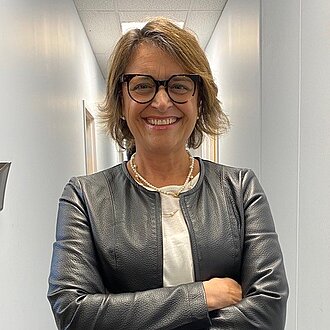Prof. Monica Fedeli

Prof. Monica Fedeli Ph.D. is Professor in Teaching and Learning Methods and Organizational Development at University of Padova. Since 2021 she is Vice Rector for the Third Mission and relations with the Territory.
She has been Adjunct Professor at Boston University, at Michigan State University, at Julius Maximilian University of Wurzburg, Germany, and Visiting Professor at California University Berkeley, School of Education. In 2020 she was Fulbright recipient at University of Georgia in US where she spent 7 months.
- active teaching
- participatory teaching and learning
- faculty development
- university business dialogue
- women leadership
- personal and professional development
- educational coaching and
- Third mission and continuing education
She published more than 150 articles, books, and book chapters in variety of national and international journals, and book series.
CG11: Faculty development: Policies, Organizational challenges and professional development
Co-Moderator: Prof. Laura Bierema
The group will analyze and compare how faculty and instructors across different universities and organizations develop competencies related to teaching and learning. This will include an exploration of institutional policies, organizational challenges, and the individual motivations behind skill development for improved teaching practices. Faculty development programs will be examined, and various opportunities for professional growth will be discussed collaboratively during the group work.
The relevance of this CGW is to understand the efforts made by the different countries for transforming and innovating teaching and learning through faculty development strategies and practices.
Therefore, the expected learning outcomes of this CGW are related to:
- Knowledge about HEIs policies related to professional development of faculty.
- Organizational and institutional strategies to promote faculty development.
- Programs, actions/practices implemented for promoting professional development and teaching innovation.
- Fedeli, M., Liotino, M., Taylor, E.W., Araneta, M.G. (2022). Enhancing Learning in Higher Education Using MOOC: The Experience of the University of Padua. In: G. Casalino, M. Cimitile, P. Ducange, N. Padilla Zea, R. Pecori, P. Picerno, & P. Raviolo (Eds.) Higher Education Learning Methodologies and Technologies Online. HELMeTO 2021. Communications in Computer and Information Science, vol 1542. Springer, Cham. https://doi.org/10.1007/978-3-030-96060-5_16
- Tino, C. & Fedeli M. (2022). Career planning, proactivity, self-employability, and labour market: undergraduates’ perceptions. Form@re (1) pp.262-278.
- Tino, C., Lavagnolo, C., Fedeli, M., Bierema, L., L. (2022). Women’s career decision making and interest in engineering: a qualitative analysis of influential personal and contextual factors. Andragoška Spoznanja, 1-22.
- Fedeli, M. & Bierema, L. L. (Eds.). (2019). Connecting adult learning and knowledge management. Strategies for learning and change in higher education and organizations. Svizzera: Springer International Publishing.


